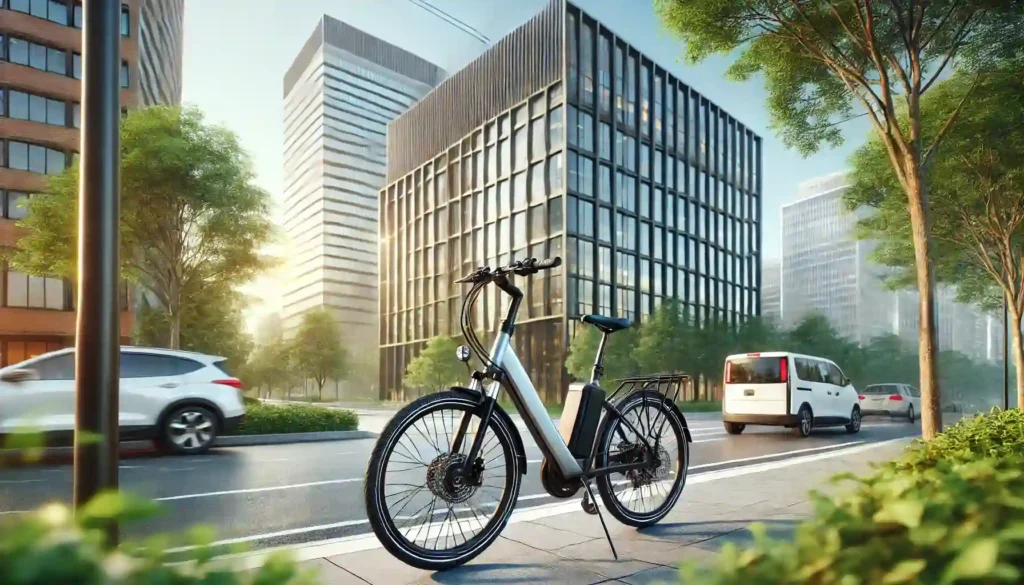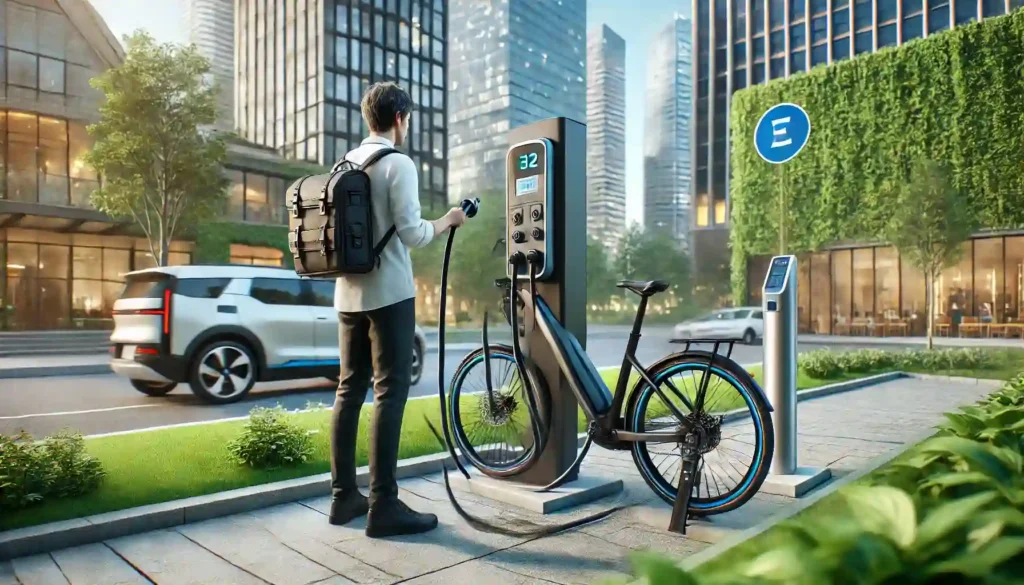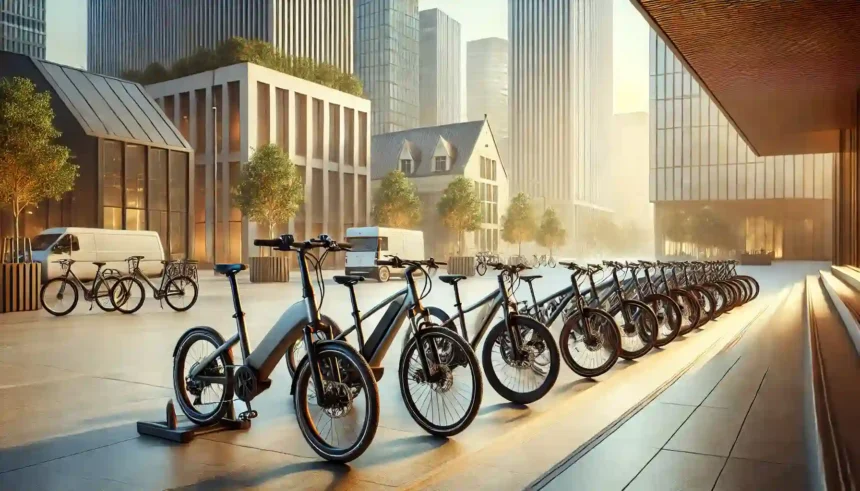Electric bicycles, or e-bikes, have surged in popularity as a sustainable and efficient mode of transportation. These eco-friendly alternatives to traditional bikes and cars offer numerous benefits, including reduced emissions, cost savings, and improved accessibility. Electric bicycles are revolutionizing how we think about transportation and mobility in urban and suburban environments.
“Electric bicycles are transforming urban transportation by offering a green, efficient, and accessible alternative to cars.” – Elon Musk, entrepreneur and CEO of Tesla.
Elon Musk’s quote underscores the transformative potential of electric bicycles in promoting sustainable urban transportation.
What are Electric Bicycles?
Electric bicycles, commonly known as e-bikes, combine traditional bicycle mechanics with an electric motor to assist with pedaling. These bikes offer a blend of manual and electric power, making them an attractive option for commuting, recreation, and exercise. Electric bicycles provide varying levels of assistance, allowing riders to customize their riding experience.
Key Features of Electric Bicycles
- Pedal Assistance: Electric motors assist with pedaling, reducing effort.
- Battery-Powered: Rechargeable batteries provide power for the electric motor.
- Versatile Modes: Riders can switch between manual, assisted, and full electric modes.
“E-bikes offer a versatile and eco-friendly solution for daily commuting and recreational activities.” – Leah Shahum, Director of the Vision Zero Network.
Leah Shahum highlights the versatility and environmental benefits of e-bikes.

Benefits of Electric Bicycles
Electric bicycles offer numerous advantages that make them a compelling choice for eco-conscious individuals. Electric bicycles support environmental sustainability, economic savings, and enhanced personal health.
Environmental Benefits of Electric Bicycles
E-bikes significantly reduce greenhouse gas emissions and reliance on fossil fuels, making them an eco-friendly transportation option.
- Reduced Emissions: E-bikes emit far fewer pollutants compared to cars and motorcycles.
- Energy Efficiency: They use significantly less energy than motor vehicles.
- Decreased Traffic Congestion: Promotes cleaner, less congested urban environments.
Economic Savings
Using an e-bike can lead to substantial savings on transportation costs, including fuel, maintenance, and parking.
- Lower Operating Costs: E-bikes are cheaper to operate than cars and public transport.
- Maintenance Savings: Fewer mechanical parts reduce maintenance costs.
- No Fuel Costs: Electricity is cheaper than gasoline or diesel.
Health and Fitness
E-bikes promote physical activity and cardiovascular health by encouraging more frequent and longer rides.
- Increased Exercise: Riders can pedal more comfortably, encouraging regular exercise.
- Cardiovascular Benefits: Consistent riding improves heart health and stamina.
- Mental Health: Outdoor activity and exercise reduce stress and improve mental well-being.
“Electric bicycles offer a sustainable and healthy transportation option, reducing emissions and promoting physical activity.” – Dr. Steven Chu, Nobel Laureate and former U.S. Secretary of Energy.
Dr. Steven Chu emphasizes the dual benefits of e-bikes for both the environment and personal health.

Types of Electric Bicycles
Various types of electric bicycles cater to different riding needs and preferences. Here are some popular electric bicycles categories.
Commuter E-Bikes
Designed for urban commuting, these e-bikes prioritize comfort, speed, and practicality.
- Comfortable Seating: Ergonomic designs for daily use.
- Integrated Lights: Built-in lighting systems for safety.
- Cargo Racks: Equipped with racks for carrying bags and other items.
Mountain E-Bikes
Built for off-road adventures, these e-bikes offer enhanced durability and power.
- Robust Frames: Sturdy frames and suspension systems for rough terrain.
- Powerful Motors: High-torque motors for climbing steep hills.
- Advanced Braking Systems: Reliable brakes for safety on rugged trails.
Folding E-Bikes
Ideal for those with limited storage space, folding e-bikes are compact and portable.
- Compact Design: Easily foldable for storage and transport.
- Lightweight: Made with lightweight materials for easy carrying.
- Quick Assembly: Simple mechanisms for fast setup and breakdown.
“From daily commutes to weekend adventures, there’s an electric bicycle suited for every rider’s needs.” – Brian Sarmiento, cycling enthusiast and author.
Brian Sarmiento highlights the wide range of e-bike options available for different purposes.
How to Choose the Right Electric Bicycle
Selecting the perfect e-bike involves considering various factors to match your specific needs and preferences. Here are tips for choosing the best electric bicycle for you.
Assess Your Riding Needs
Identify how and where you plan to use your e-bike.
- Commuting: Look for e-bikes with comfortable seating and storage options.
- Recreational Riding: Choose models with robust frames and advanced suspension.
- Mixed Use: Opt for versatile e-bikes that perform well in various environments.
Check Battery and Motor Specifications
Evaluate the battery life and motor power to ensure they meet your requirements.
- Battery Life: Consider the range you need for your typical rides.
- Motor Power: Higher wattage for hilly terrains or heavier loads.
- Charging Time: Check how long it takes to recharge the battery.
Consider Additional Features
Look for features that enhance convenience, safety, and performance.
- Integrated Lights: Essential for visibility and safety during night rides.
- Suspension Systems: Important for comfort on rough terrains.
- Connectivity: Some e-bikes offer smart features like app integration.
“Choosing the right electric bicycle ensures a comfortable and enjoyable riding experience.” – Tom Vanderbilt, author of “Bicycles: Love & Science on Two Wheels.”
Tom Vanderbilt emphasizes the importance of selecting an e-bike that fits your lifestyle and needs.

The Future of Electric Bicycles
The future of electric bicycles looks promising, with advancements in technology and growing interest in sustainable transportation. Electric bicycles are set to become even more integral to our transportation systems.
Technological Advancements
Innovations in battery technology, motor efficiency, and smart features will enhance e-bike performance.
- Longer Battery Life: Advances in battery technology will extend the range of e-bikes.
- Smarter Connectivity: Integration with smartphones and IoT for enhanced riding experiences.
- Lightweight Materials: Development of stronger, lighter materials for improved efficiency.
Policy and Infrastructure Support
Governments and urban planners are increasingly supporting e-bike adoption through policies and infrastructure.
- Bike Lanes: Expansion of bike lanes and dedicated paths for safer riding.
- Subsidies and Incentives: Financial incentives for purchasing e-bikes.
- Public Charging Stations: More charging stations to support e-bike users.
Increased Adoption
As awareness of environmental issues grows, more people will turn to e-bikes for transportation.
- Urban Mobility: E-bikes will become a staple in urban mobility solutions.
- Health Consciousness: Growing focus on health will drive e-bike usage.
- Corporate Initiatives: Companies will promote e-bikes as part of employee wellness programs.
“The future of transportation is electric, and e-bikes are leading the charge towards a more sustainable world.” – Leilani Münter, environmental activist and professional race car driver.
Leilani Münter envisions a future where electric bicycles play a central role in sustainable transportation.
International Energy Agency offers insights into the impact of electric transportation on the environment. For more information on choosing the right e-bike, visit Bicycling Magazine. You can explore additional eco-friendly transportation tips in our transportation section.
















Reading your article helped me a lot and I agree with you. But I still have some doubts, can you clarify for me? I’ll keep an eye out for your answers.